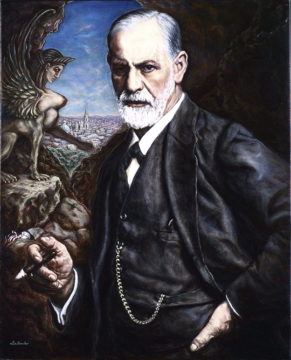by Chris Horner
if often he was wrong and, at times, absurd,
to us he is no more a person
now but a whole climate of opinion
under whom we conduct our different lives—W. H. Auden ‘In memory of Sigmund Freud’

Undead
Freud and psychoanalysis seem to be in a state resembling Schrodinger’s famous cat: alive and dead at the same time. Dead and discredited and yet alive and influential. Perhaps the better analogy here is not to the ambiguous feline but to another figure: that of the undead. For while Freud the man expired in 1939 and has been killed again and again before and after that date, still he returns, like something repressed that just won’t lie down and vanish.
In an interesting essay in the New Republic in 1995, Jonathan Lear commented on the extraordinary fervour with which Freud and psychoanalysis seemed to be killed, again and again [1]. It prompts the thought: why? Lear proposes three cultural currents that motivate Freud bashing: the development of drugs, alongside increasing knowledge and interest in how the brain works, the way cheap pharmacology seems preferable to expensive psychoanalysis, and finally a backlash against some of the grander claims about Freud and his techniques that were much touted in the earlier part of the last century. Certainly Freud got things wrong and sometimes went about his analysis in a way that seems quite mistaken. But is that it? Read more »
